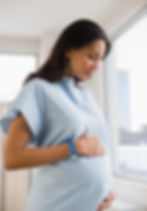
Becoming pregnant, pregnancy and beyond can be a wonderful, life changing time.
However, it can be mentally and physically challenging and the emotional concerns of an expectant mum should not be overlooked.
The body undergoes many changes; anatomical, physiological, biological and hormonal, to allow your body to adapt as the baby develops.
During the first trimester you and your body know there are changes happening. For some, feeling nauseous becomes apparent and the breasts become tender and enlarged.
Extreme fatigue can be experienced particularly during the first and third trimesters. Your ligaments start to relax and your muscles may tighten which can cause low back pain and sometimes nerve impingement resulting in sciatic pain symptoms.
Towards the end of the first trimester and during the second trimester, pressure can be experienced on the diaphragm and ribcage as the foetus grows causing breathlessness and heartburn.
The abdominal, low back and pelvic muscles become fatigued with the increased load they support, which can cause hip and back pain.
Some expectant mothers will experience the 'pregnancy glow' as hair gets thicker, skin becomes clearer, and nails stronger.

In the third trimester the baby continues to grow and the body undergoes further changes. 'Diastus recti', separation of the abdominal muscles, allows space for the maturing baby.
The ligaments of the pelvic bones relax preparing the pelvis for birth. Some may have swelling of the feet, legs and arms, known as oedema, due to the increased volume of fluid the body produces during pregnancy.
Not all of these symptoms will disappear after giving birth (the 'fourth trimester'). The body will continue to adjust and adapt to new changes such as breast feeding, lack of sleep, carrying the baby, which can put a strain on the muscles, ligaments and joints after pregnancy and some discomfort may be experienced such as upper back and neck ache.
The body can take several months before feeling 'normal' again. In one study, pregnant women who were massaged twice weekly for 5 weeks experienced less anxiety and less leg and back pain. They reported better sleep and improved moods, and their labours had fewer complications, including fewer premature births (Field et al. 1999).
Pregnancy massage is all about 'me time' for the woman, relaxation of body and mind and easing any muscular tension and pain.
Plenty of cushions, blankets and bolsters are provided for the client's comfort and privacy.
The massage is given in a side lying position and gives you time completely to yourself, resulting in steadier blood pressure, pulse and respiratory rates so blood flow to the uterus, placenta and foetus becomes more regular (Nichols and Humenick 2000) and you have time to unwind.
A fusion of body work techniques such as amma, fascial, musculoskeletal, acupressure (suitable for pregnancy), gentle stretching and self care are incorporated, tailored to your needs.
Regular massage during and after pregnancy can help:
- alleviate muscular tension, cramping, sciatic pain, reduce back pain
- improve circulation, reduce oedema (swelling)
- reduce stress and calm emotional states and responses to stressful stimuli
- improve quality of sleep, reduce fatigue, boost immune system functions,
- reduce headaches and heartburn
- prepare you mentally and physically for looking after your newborn.
For more information contact Mandy
mobile : 07747 722171
email : mandy.greenbanana@gmail.com





